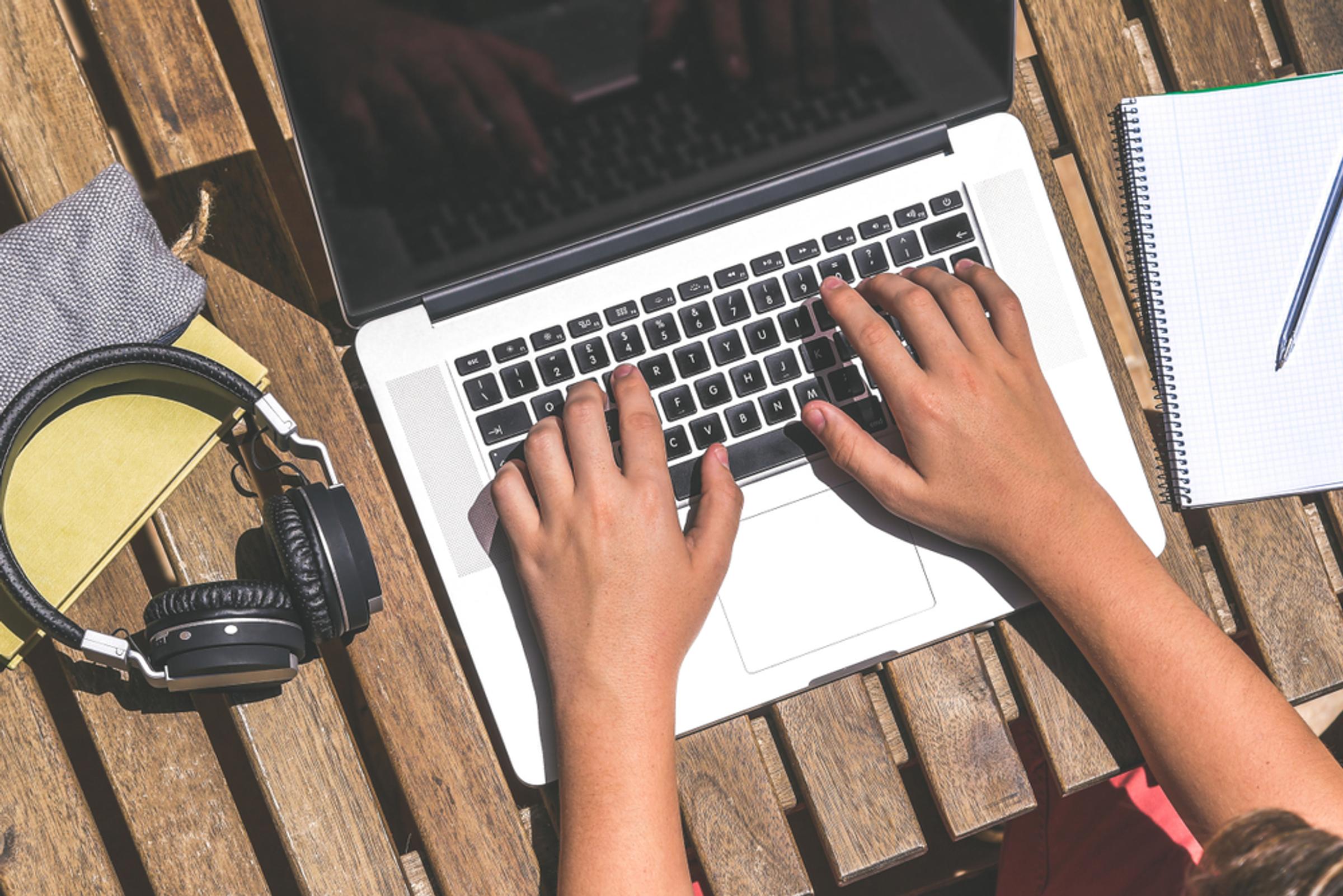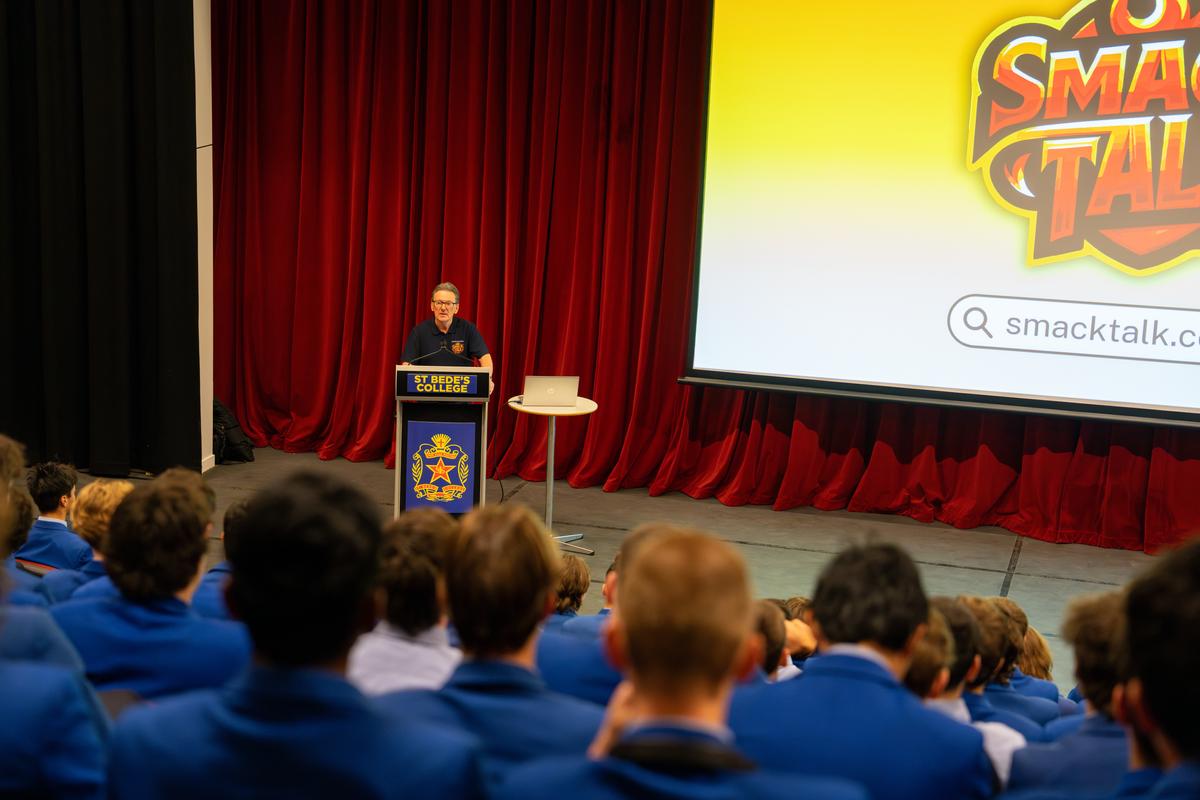Student Safety & Wellbeing

Understanding Boys' Online Behaviour
Student Wellbeing is central to everything we do at St Bede’s College. We are committed to ensuring that all our students are well cared for, enjoy a strong sense of belonging and also have a healthy respect for themselves and others.
To help shape independent, caring and confident individuals, we strive to stay abreast of research and insight into the experiences of young people, particularly boys.
Across many domains and dynamics today, boys are conforming with, confronting and challenging social and cultural expectations of manhood and masculinity. Engaging in healthy, modern masculinity is something we explore and address with our students in daily life at our College, and especially in our Wellbeing periods. You can read more about this here.
We are sharing with all families a recent report published by the Australian Government eSafety Commissioner into the online experiences of boys and young men.
Being A Young Man Online explores the influences and motivations that shape and inform the online experiences and emotional states of those aged 16 to 21.
The report found that boys and young men are navigating complex and often contradictory online experiences, and feel a diversity of emotions, from freedom, intimacy and connection, to anxiety, caution and harm.
Among key findings, being online is a place for boys to:
- Shape and express their identities
- Explore their sexuality
- Access and navigate social connections
- Both experience and perpetuate harm in gaming communities.
Social media and screen time in moderate to high amounts are linked to anxiety, depression and lower overall wellbeing. Given the commonality of these online experiences, our role as parents and as the College is to create positive outcomes for your child, and educate him to be a safe and responsible citizen, in digital and in-person environments.
The role of parents is to:
- Care for and educate your child while at home and not at school
- Check in regularly on his wellbeing
- Minimise risks and maximise benefits for your child by learning about online safety for your child
- Have open conversations about online behaviour and be prepared to have hard conversations
- Monitor the use of digital devices and establish family rules about when and where a device can be used.
The role of our College is to:
- Care for and educate your child at school
- Check in regularly on his wellbeing
- Teach students evidence-based strategies about safe and responsible online behaviour and digital literacy as per eSafety Best Practice Framework
- Deliver programs to students from eSafety Certified Training Providers including Digital Thumbprint for Cybersecurity, Cyberbullying, digital identity, discernment, and balance
- Uphold the use of digital devices as per our College Policy, whereby phones are to be stored in lockers between 8.30am and 3.15pm.
We trust that this report helps to deepen an understanding of what boys experience online, how they feel about those experiences and how they react to them.
Through this understanding, we can engage in more open discussion and role modelling of healthy, respectful masculinity, and adopt strategies to help ensure their safety and wellbeing online.
SmackTalk Education
Guest Speaker Wayne Holdsworth
***Content Warning***
This news article mentions suicide which may be distressing for some people.
Last week, our students across Years 9 to 11 were honoured to host Wayne Holdsworth from SmackTalk. Wayne's mission at SmackTalk is to educate young people and adults about suicide prevention and protecting themselves online. In October 2023, Wayne's beloved son Mac took his own life after a fateful online incident. Mac was 17.
Mac was the victim of sextortion - a rapidly growing, predatorial and criminal form of cyber bullying - which occurred on social media. Mac's mental health declined and resulted in his death. SmackTalk has shared these tips:
- Students - check in with your friends and truly listen. Don't be afraid to reach out.
- Parents - check in with your kids and truly listen.
- Don't befriend people you don't know on social media.
- Keep phones out of bathrooms and bedrooms.
- Never take or share intimate photos of yourself or anyone else.
- Look out for warning signs.
SmackTalk is petitioning the Australian Governmentto increase the age for social media access for children. You can read more about this here.
If this article has raised concerns or distress, please reach out to:
MensLine Australia: 1300 789 978
Suicide Call Back Service: 1300 659 467
It’s our privilege to work alongside you in educating and supporting your child.
Should you require further information regarding online safety, please visit esafety.

